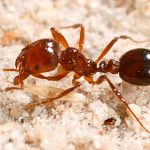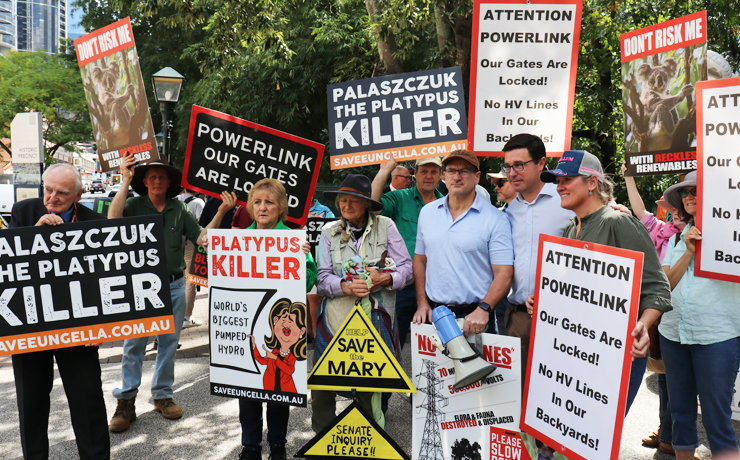September 1, 2014
Farmers now have a new enemy in the battle against weeds: glyphosate-resistant Sweet Summer Grass.
The weed is a major problem in summer and can form dense mats in cultivation. Individual plants can produce up to 6000 seeds and remains of old plants impede winter crop establishment.
Late in 2013, staff from the Department of Agriculture, Fisheries and Forestry’s CQ Grower Solutions group identified a population of the weed near Emerald that had survived application of glyphosate at label rates.
When tested for resistance against susceptible plants by NSW DPI the results were very unsettling.
DAFF Weed Scientist Dr Michael Widderick said that a photograph taken 16 days after treating with glyphosate 450 at 1.6L/ha showed susceptible plants fully controlled while the suspect plants were green and healthy.
“The discovery of this CQ patch is a world first case of Sweet Summer Grass being glyphosate resistant,” Dr Widderick said.
“Although CQ farmers are already contending with Feather-top Rhodes grass patches that can easily survive 4L/ha of glyphosate, this is another sign that weed control in this region needs to be more flexible and not so reliant on glyphosate.
“Like most other cases of glyphosate resistance, this population was sourced from a zero tillage farm.
“Zero till operations are thought to have started on this farm in the mid-1990s, allowing at least 20 years of reliance on glyphosate.”
DAFF is continuing to work with NSW DPI on this research program with the next step being to determine the level of resistance by undertaking a glyphosate rate response experiment.
“For a plant to re-shoot so rapidly within 16 days after application may indicate a moderate to high level of resistance but future investigations should determine how tough these plants are,” Dr Widderick said.
“In the meantime, we are urging CQ growers who suspect glyphosate resistant Sweet Summer Grass to collect seed and contact DAFF on 13-25-23 to organise resistance testing on the samples.
“Additionally, agronomic advice should be sought to ensure population blow-outs do not occur. Stopping seed set will be the key to achieving this.
“Effective control is likely to be a combination of applying other effective herbicides and combining that with non-chemical tactics.”























